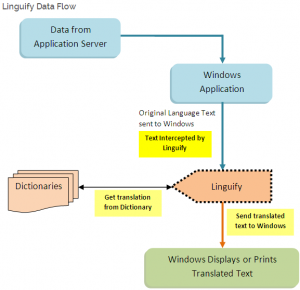PuneTech has just learnt that Pune-based Enterprise file sharing and sync (EFSS) startup Vaultize has just received funding from Tata Capital Innovations Fund.
Vaultize builds cloud-based solutions for enterprise endpoint (i.e. laptop/desktop/mobile devices) sync, backup, encryption, security, and anytime/anywhere access to corporate file servers – all of this in a way that is visible to, and under the control of administrators in the company.
Through Vaultize’s endpoint encryption, sensitive corporate information remains encrypted on endpoints ensuring protection against unauthorized access and potential data leakage from lost or stolen device. In addition to on-disk protection, Vaultize’s patent pending encryption technology used in file sharing and backup ensures that the data is encrypted or decrypted only on endpoints – guaranteeing end-to-end protection
Vaultize, which so far has a presence only in India (with some sales outside via channel partners) will use the funding to scale up its expansion across the world, with immediate plans to establish operations in the US and Europe in conjunction with channel partners. The company will also use the funds towards building up its sales, marketing and engineering teams, and to enhance its global partner program.
PuneTech spoke with CEO and co-founder Anand Kekre. Here are some excerpts from the conversation:
Question: Another Pune startup in the storage and backup space, Druva.com, has been in the limelight in the last few years. How is Vaultize different?
Actually, we are not in the same market as Druva. Druva is more of a backup solution. Also, while they do have cloud-based backup, their focus traditionally has been on on-premise backup.
By contrast we are in what Gartner calls the EFSS (Enterprise File Sync and Share) space. We are more concerned with providing access to enterprise data from any device, from any where, without compromising on security. We ensure the enterprise data can be accessed from any device – including personal mobile devices – while at all times ensuring that the data is encrypted at all times, whether it is being sent over the network, or when it is stored on the disk in the device.
There are two major things we do that are unique to our solution. First, all the data that is being shared, synced, or in general being moved around via Vaultize is encrypted at source. This ensures that the data is never at risk once it leaves the device. Specifically, any data going over the network, or stored on Vaultize servers is always encrypted and the encryption key is only available at the endpoints (i.e. devices). Second, we do data de-duplication at source. That is, if the speed/latency and network bandwidth consumption is greatly improved by detecting whether the Vaultize servers already have a copy of the data that needs to be sent/synced (for example, same attachment being shared by various people), and only sending across the unique content. And this is achieved without losing the benefits of encryption-at-source, using patent-pending technology.
Question: So, your software can ensure that use of mobile devices with enterprise data is secure?
Across the world, there has been a proliferation of consumer file sharing and Bring-Your-Own-Device (BYOD) trends, and this has resulted in an increase in data loss, security and compliance risks.
There are two different aspects to ensuring security for BYOD devices. First, the enterprise needs to ensure that it is safe to allow a mobile device to connect to the enterprise network – i.e. it is an authorized device, and it only has authorized applications, and more specifically, does not have viruses and malware. This area is called Mobile Device Management (MDM). Vaultize does not deal with this issue.
Once a device has been allowed to connect to the network, Vaultize ensures that the data on the device is safe and secure by encrypting all the sensitive data on the disk, by being able to sync data across various devices, and geographies, and by providing secure (via encryption) access to the data from anywhere, in a way that compiles with all the enterprise security policies.
And it does all of this in a way that can be easily managed and controlled by the enterprise IT administrators.
Question: What is your team size currently, and how are you planning on expand
ing it?
Currently, we are about 15 people, all in India. Over the next year, we hope to expand our team to about 30-35 people. We will be looking to expand not only in the area of sales and marketing, but also engineering, QA, and support.
For more information about Vaultize, see http://www.vaultize.com
